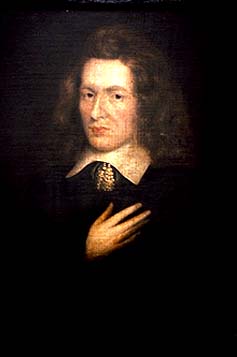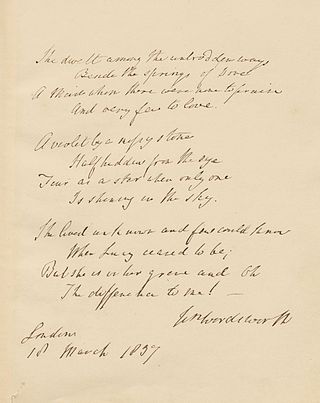Related Research Articles

Crispus Attucks was an American whaler, sailor, and stevedore of African and Native American descent, who is traditionally regarded as the first person killed in the Boston Massacre, and as a result the first American killed in the American Revolution.
This article contains information about the literary events and publications of 1746.

King Philip's War was an armed conflict in 1675–1676 between a group of indigenous peoples of the Northeastern Woodlands and the English New England Colonies and their indigenous allies. The war is named for Metacomet, the Pokanoket chief and sachem of the Wampanoag who adopted the English name Philip because of the friendly relations between his father Massasoit and the Plymouth Colony. The war continued in the most northern reaches of New England until the signing of the Treaty of Casco Bay on April 12, 1678.
Lucy Terry Prince, often credited as simply Lucy Terry (1733–1821), was an American settler and poet. Kidnapped in Africa and enslaved, she was taken to the British colony of Rhode Island. Her future husband purchased her freedom before their marriage in 1756. She composed a ballad poem, "Bars Fight", about a 1746 incident in which two white families were attacked by Native Americans. It was preserved orally until it was published in 1855. It is considered the oldest known work of literature by an African American.

Lyrical Ballads, with a Few Other Poems is a collection of poems by William Wordsworth and Samuel Taylor Coleridge, first published in 1798 and generally considered to have marked the beginning of the English Romantic movement in literature. The immediate effect on critics was modest, but it became and remains a landmark, changing the course of English literature and poetry. The 1800 edition is famous for the Preface to the Lyrical Ballads, something that has come to be known as the manifesto of Romanticism.

Josiah Winslow was the 13th Governor of Plymouth Colony. In records of the time, historians also name him Josias Winslow, and modern writers have carried that name forward. He was born one year after the Charter which founded the Massachusetts Bay Colony, bringing over 20,000 English immigrants to New England in the 1630s. Josiah was the Harvard College-educated son of Mayflower passenger and Pilgrim leader and Governor Edward Winslow and was Governor from 1673 to 1680. The most significant event during his term in office was King Philip's War, which created great havoc for both the English and Indian populations and changed New England forever. Josiah was the first governor born in a "New England" colony.

Josiah Gilbert Holland was an American novelist, essayist, poet and spiritual mentor to the Nation in the years following the Civil War. Born in Massachusetts, he was “the most successful man of letters in the United States” in the latter half of the nineteenth century and sold more books in his lifetime than Mark Twain did in his.

"The Three Ravens" is an English folk ballad, printed in the song book Melismata compiled by Thomas Ravenscroft and published in 1611, but it is perhaps older than that. Newer versions were recorded right up through the 19th century. Francis James Child recorded several versions in his Child Ballads.
African American literature is the body of literature produced in the United States by writers of African descent. It begins with the works of such late 18th-century writers as Phillis Wheatley. Before the high point of enslaved people narratives, African American literature was dominated by autobiographical spiritual narratives. The genre known as slave narratives in the 19th century were accounts by people who had generally escaped from slavery, about their journeys to freedom and ways they claimed their lives. The Harlem Renaissance of the 1920s was a great period of flowering in literature and the arts, influenced both by writers who came North in the Great Migration and those who were immigrants from Jamaica and other Caribbean islands. African American writers have been recognized by the highest awards, including the Nobel Prize given to Toni Morrison in 1993. Among the themes and issues explored in this literature are the role of African Americans within the larger American society, African American culture, racism, slavery, and social equality. African-American writing has tended to incorporate oral forms, such as spirituals, sermons, gospel music, blues, or rap.

Joy Harjo is an American poet, musician, playwright, and author. She served as the 23rd United States Poet Laureate, the first Native American to hold that honor. She was also only the second Poet Laureate Consultant in Poetry to have served three terms. Harjo is a member of the Muscogee Nation and belongs to Oce Vpofv. She is an important figure in the second wave of the literary Native American Renaissance of the late 20th century. She studied at the Institute of American Indian Arts, completed her undergraduate degree at University of New Mexico in 1976, and earned an MFA degree at the University of Iowa in its creative writing program.
Nationality words link to articles with information on the nation's poetry or literature.
Nationality words link to articles with information on the nation's poetry or literature.
Nationality words link to articles with information on the nation's poetry or literature.

The Great Swamp Massacre or the Great Swamp Fight was a crucial battle fought during King Philip's War between the colonial militia of New England and the Narragansett people in December 1675. It was fought near the villages of Kingston and West Kingston in the Colony of Rhode Island and Providence Plantations. The combined force of the New England militia included 150 Pequots, and they inflicted a huge number of Narragansett casualties, including many hundred women and children. The battle has been described as "one of the most brutal and lopsided military encounters in all of New England's history." Since the 1930s, Narragansett and Wampanoag people commemorate the battle annually in a ceremony initiated by Narragansett-Wampanoag scholar Princess Red Wing.

"She Dwelt Among the Untrodden Ways" is a three-stanza poem written by the English Romantic poet William Wordsworth in 1798 when he was 28 years old. The verse was first printed in Lyrical Ballads, 1800, a volume of Wordsworth's and Samuel Taylor Coleridge's poems that marked a climacteric in the English Romantic movement. The poem is the best known of Wordsworth's series of five works which comprise his "Lucy" series, and was a favorite amongst early readers. It was composed both as a meditation on his own feelings of loneliness and loss, and as an ode to the beauty and dignity of an idealized woman who lived unnoticed by all others except by the poet himself. The title line implies Lucy lived unknown and remote, both physically and intellectually. The poet's subject's isolated sensitivity expresses a characteristic aspect of Romantic expectations of the human, and especially of the poet's condition.

The Lucy poems are a series of five poems composed by the English Romantic poet William Wordsworth (1770–1850) between 1798 and 1801. All but one were first published during 1800 in the second edition of Lyrical Ballads, a collaboration between Wordsworth and Samuel Taylor Coleridge that was both Wordsworth's first major publication and a milestone in the early English Romantic movement. In the series, Wordsworth sought to write unaffected English verse infused with abstract ideals of beauty, nature, love, longing, and death.

The Quincy family was a prominent political family in Massachusetts from the mid-17th century through to the early 20th century. It is connected to the Adams political family through Abigail Adams.

Robert Anderson (1770–1833), was an English labouring class poet from Carlisle. He was best known for his ballad-style poems in Cumbrian dialect.

The Battle of Pequawket occurred on May 9, 1725 (O.S.), during Father Rale's War in northern New England. Captain John Lovewell led a privately organized company of scalp hunters, organized into a makeshift ranger company, and Chief Paugus led the Abenaki at Pequawket, the site of present-day Fryeburg, Maine. The battle was related to the expansion of New England settlements along the Kennebec River.
Meghnad Badh Kavya is a Bengali epic poem by Michael Madhusudan Dutta. Regarded as a central work in Bengali literature and Dutta's greatest literary work as well as the finest epic in Bengali literature and also as one of the greatest works of world literature. Meghnad Badh Kavya is based on the demise of Meghnad, son of Ravana, the king of Lanka in the classic Sanskrit epic Ramayana.
References
- ↑ Vincent Carretta, ed. (2001). Phillis Wheatley, Complete Writings. New York: Penguin. p. 199. ISBN 9780140424300.
- 1 2 Margaret Busby, Daughters of Africa , London: Jonathan Cape, 1992, p. 16–17.
- 1 2 Holland, Josiah Gilbert (1855). History of Western Massachusetts: The Counties of Hampden, Hampshire, Franklin, and Berkshire. Embracing an Outline Aspects and Leading Interests, and Separate Histories of Its One Hundred Towns. Vol. II. Springfield, MA: Samuel Bowles and Co. p. 360.
- ↑ Gates, Henry Louis; Nellie Y. McKay (2003). The Norton Anthology of African American Literature. New York: W. W. Norton & Company. p. 186. ISBN 9780393977783.
- ↑ Katz, Bernard (Fall 1966). "A Second Version of Lucy Terry's Early Ballad?". Negro History Bulletin. 29 (8): 183. JSTOR 44176226.
- ↑ Huse, Ann A. "Beyond “The Bars”: Lucy Terry Prince and the Margins of the Colonial Landscape." Liminality, Hybridity, and American Women's Literature. Palgrave Macmillan, Cham, 2018. p.52.